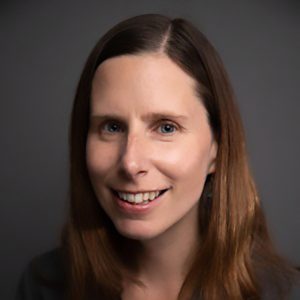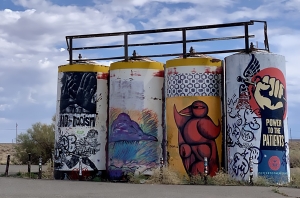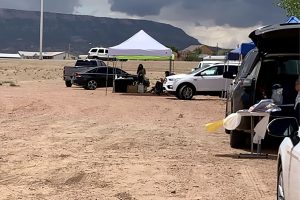Fairness First blog
Researchers voices in health equity
The Fairness First blog represents a space where researchers share with the broader community why health equity research matters to them, how do they connect to health equity, and what is the value of community engagement in the research process.
December 7, 2021
Health equity for children with special health care needs with Olivia Lindly, PhD
Assistant Professor, Department of Health Sciences
 Olivia Lindly is passionate about advancing health equity for children with special health care needs such as autism and their families. She became an Assistant Professor in the Department of Health Sciences at Northern Arizona University (NAU) during 2019. Prior to NAU, she completed the Harvard-wide Pediatric Health Services Postdoctoral Fellowship based at Massachusetts General Hospital. Her research program is focused on the following two areas: (1) identifying modifiable determinants of health such as policy for children with developmental disabilities and their families, and (2) building family and clinician capacities to help optimize health for this population.
Olivia Lindly is passionate about advancing health equity for children with special health care needs such as autism and their families. She became an Assistant Professor in the Department of Health Sciences at Northern Arizona University (NAU) during 2019. Prior to NAU, she completed the Harvard-wide Pediatric Health Services Postdoctoral Fellowship based at Massachusetts General Hospital. Her research program is focused on the following two areas: (1) identifying modifiable determinants of health such as policy for children with developmental disabilities and their families, and (2) building family and clinician capacities to help optimize health for this population.
Dr. Lindly earned a PhD in public health with an emphasis on health promotion and health behavior from Oregon State University, an MPH concentrated in child and adolescent health from Johns Hopkins University, and a BA in psychology from Reed College. In addition to her academic training, Dr. Lindly has a variety of applied public health work experience including the provision of behavioral health services to children and families involved with the child welfare system, the evaluation of public health programs for federal and state government agencies, and the secondary analysis of national health survey databases. Outside of work, she enjoys spending time with her partner and two young children and exploring the Southwest.
Q. How would you describe your research and why it matters?
A. My research is about figuring out what can be done to better support children with special health care needs (like autism) and their families so they can thrive and lead healthy lives.
Q. Tell us about a moment in your life when you decided, “This is the type of research I want to do!”
A. This happened in my MPH program at Johns Hopkins University—it was not one definitive moment, but several that occurred in different courses. In my course on program evaluation, I discovered that I loved designing studies, including the integration of conceptual and theoretical frameworks. In my courses on maternal and child health, I discovered that I was passionate about advancing social justice for children and families historically underrepresented in our country’s research and policy initiatives. In my biostats courses, I learned to embrace the power of data and statistics.
Q. What is the element of “unfairness” or “inequity” in the issue you are examining?
 A. For children and their families, I pay special attention to the ways in which ethnicity and disability intersect because we can gain deeper understanding of how differences in ethnicity and disability contributes to pronounced and persistent inequalities in health for individuals of color and with disability across the life course.
A. For children and their families, I pay special attention to the ways in which ethnicity and disability intersect because we can gain deeper understanding of how differences in ethnicity and disability contributes to pronounced and persistent inequalities in health for individuals of color and with disability across the life course.
Q. Based on your previous answer, how do you see your work helping to push the needle on this issue toward “fairness” or “equity”?
A. My work is about identifying factors influencing health for children with special health care needs – particularly those factors that can be sustainably intervened upon in low cost programmatic or policy-oriented ways to reduce health inequities. I believe in the practice of engaging community in this work (community-engaged research) that involves members of the population of focus to the greatest extent possible. These approaches, together, help my collaborators and I to shape or develop strategies to advance health equity.
Q. How do you want your research to make a difference or change in this world?
 A. Short-term: I would like to be able to point to a list of health determinants and strategies that I have studied and say these are what we need to focus on for children with special health care needs and their families.
A. Short-term: I would like to be able to point to a list of health determinants and strategies that I have studied and say these are what we need to focus on for children with special health care needs and their families.
Long-term: I would like to have collaboratively contributed to the development of programs and policies that communities can use at no/low cost to advance health equity for children with special health care needs and their families.
Q. What is one important lesson you’ve learned about yourself and this region through your research?
A. To some extent I already had a sense of this, but I have deeply learned since starting my position at NAU that authentic, community-engaged work takes substantial time. Relatedly, I have also learned and continue to be humbled by how much I do not know and need to continue learning.
Q. How is your research connected to scenarios or advancements related to your areas of research that are happening on a global scale?
A. Yes, I am starting to connect with other individuals doing similar work in low-resource settings in Canada, as well as lower income countries. There is a lot of energy around advancing health equity for children with special needs like autism, but we know that globally and even domestically a one size fits all approach will never work.
For more information or to join Lindly’s work, view her project flyer.
Back to the main Fairness First Campaign page.